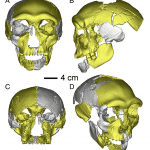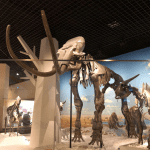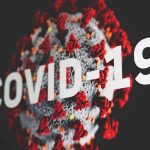DNA From 1,500 Years Ago Reveals What Ancient Chinese Emperor Looked Like
1500年前的DNA揭示了中国古代皇帝的长相
Neanderthals. Egyptian mummies. King Richard the III. Science continues to bring historic faces to view in extraordinary detail. The latest: an influential 6th century emperor whose DNA has yielded insights into his appearance, health and ancestry.
尼安德特人埃及木乃伊理查三世国王科学不断以非凡的细节展现历史的面貌。最新的研究是:一位具有影响力的六世纪皇帝的DNA让人们了解了他的外貌、健康状况和祖先。
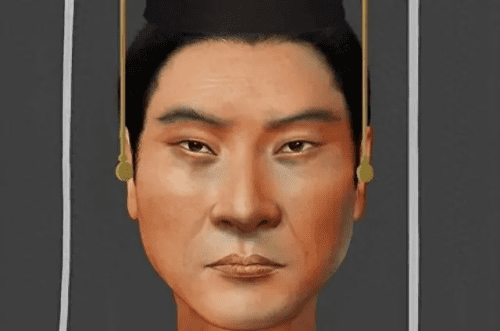
Emperor Wu, born Yuwen Yong, ruled the Northern Zhou dynasty in China from 560 to 578, during which time he built a strong military and unified the northern part of the country after defeating the Northern Qi imperial dynasty.
周武帝,生于宇文邕,560年至578年统治中国北周王朝,在此期间,他建立了强大的军队,并在击败北齐王朝后统一了中国北部地区。
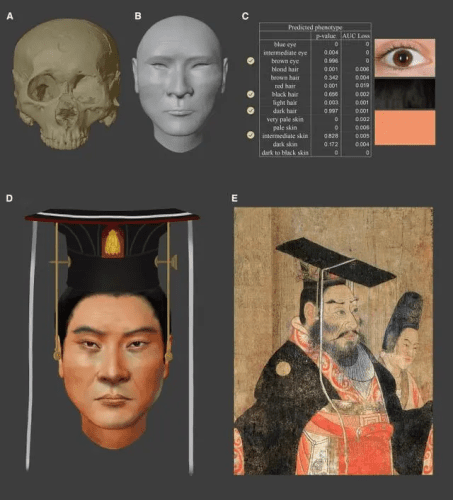
In 1996, archaeologists excavated Emperor Wu’s scattered bones and nearly intact skull from a mausoleum in northwestern China. Years later, using the contours of that skull and DNA extracted from a limb, researchers from China have created a modern-day portrait of him. In a new study published in the journal Current Biology, they detail their findings and methods, including how they verified the reliability of the DNA (the variable quality of archaic genetic material can pose significant challenges to forensic scientists).
1996年,考古学家在中国西北部的一座陵墓中发掘出了周武帝的零散尸骨和几乎完整的头骨。多年后,中国的研究人员利用头骨的轮廓和从肢体中提取的DNA,为他绘制了一幅现代肖像。在发表在《当代生物学》杂志上的一项新研究中,研究人员详细介绍了他们的发现和方法,包括他们如何验证DNA的可靠性。实际上,古代遗传物质的质量参差不齐会给法医科学家带来巨大挑战。

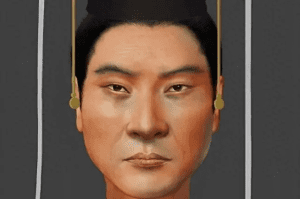

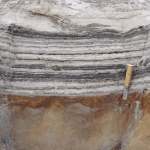
-150x150.jpg)
